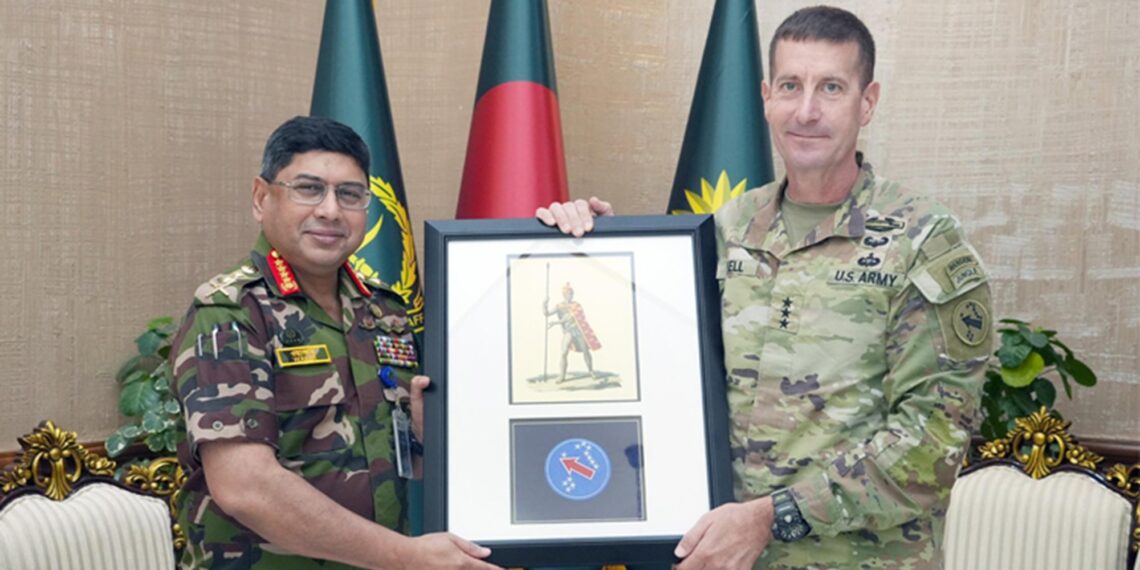Even as the controversial issue of a “humanitarian corridor” from Bangladesh territory to Myanmar’s Rakhine State is no longer being pursued by Dhaka, there is a strong likelihood that the Mohammad Yunus-led interim government may formalise two key “agreements”, with bearings on military hardware acquisitions and intelligence sharing, with the US.
Already “interested quarters” in Bangladesh’s national security apparatus are considering acquiescing to past US overtures of signing the Acquisition and Cross-Servicing Agreement (ACSA) and the General Security of Military Information Agreement (GSOMIA).
For a section of the Bangladesh security establishment, these two “fundamental defence frameworks” could enable “strengthening” the country’s “logistical and technological” position without “compromising neutrality”.
In the event Washington and Dhaka take quick steps to sign the agreements, whose draft forms were in principle agreed upon by the two sides in March 2022, it will be a significant development, especially in the context of concerns in certain neighbouring countries.
In April 2022, the then US Ambassador to Bangladesh, Peter Haas, had clearly stated that GSOMIA “would set ground rules for exchanging sensitive information about military procurements.
This framework would enable Bangladesh to modernize its military with US technology, contributing to Bangladesh’s Forces Goal 2030”.
In the same vein, Haas had said that ACSA would “allow” US and Bangladesh “militaries to offer each other assistance on the high seas, to lend equipment or spare parts when an aircraft, vehicle, or vessel is in trouble, or to simply exchange fuel and food”.
To drive home the American point, Haas had said that ACSA had a “real-world impact on safety and interoperability, like when a vessel ends up stranded in the Port of Beirut after the 2020 explosion or during joint humanitarian relief efforts in the Bay of Bengal”.
Describing the two agreements as “simple building blocks to a closer relationship” that would allow the US “to help” Bangladesh’s “armed forces advance” their defence goals”, Haas had sought to alleviate “misperceptions about GSOMIA and ACSA”.
Bangladesh’s armed forces are said to be “institutionally and technically prepared” to fulfil “obligations” enjoined by GSOMIA.
Some officials said that the Armed Forces Division under the Chief Adviser’s Office, the DGFI and the three service commands operate fibre-linked infrastructure, nascent cyber cells and growing GIONT capabilities which are “prerequisites for safeguarding sensitive defence data”.
Bangladeshi security analysts, who did not want to be named, said that formal inking of ACSA and GSOMIA would add strategic strength to Bangladesh’s balancing posture, if any, in the region.
However, it could raise China’s hackles as it is the major supplier of military hardware to Bangladesh.
In recent times, and especially after August 2024 and now, the Bangladesh Army has had some key meetings with Chinese representatives of defence companies willing to do business related to surface-to-air and ballistic missiles.
Bangladesh Army chief General Waker-uz-Zaman is scheduled to visit China, at the latter’s invitation, towards the end of June.
While there are and questions over GSOMIA’s ability to “integrate” Chinese and Turkish weapons systems with NATO-grade munitions, another major consideration for Bangladeshi authorities would be likely Indian concerns over the likely formalisation of the two agreements.















